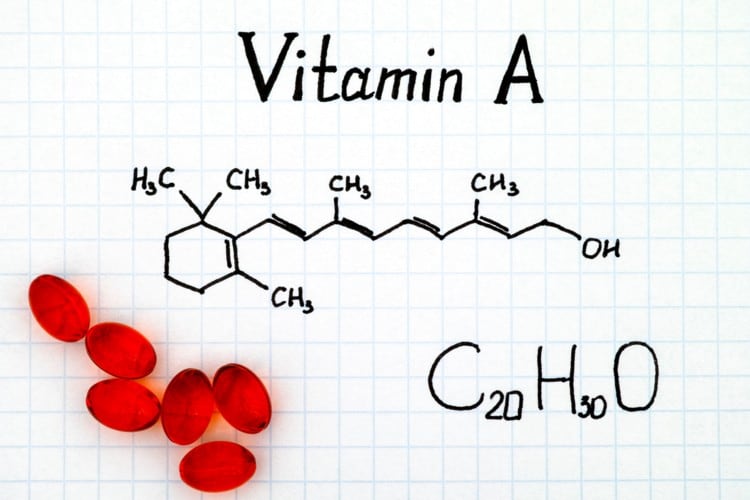Researchers at the Holy Spirit University of Kaslik in Lebanon conducted a study to analyse the link between vitamin A intake and plasma HDL cholesterol levels in 57 (22 male, 35 female) obese but metabolically healthy Lebanese participants, aged 18 to 62 years old.
Participants’ BMI was 29.9kg/m2 and above, and they were assessed between June 2017 and October 2017 using dietary, anthropometric and biochemical data.
They also had no clinical signs of vitamin A deficiency and did not take any nutritional supplements (apart from vitamin D) or medications to treat high triglyceride, cholesterol or LDL levels, diabetes, hypertension or low HDL levels.
The researchers used a semi-quantitative food frequency questionnaire to determine the intake of vitamin A (among other antioxidants), and Pearson’s correlation coefficient to measure the strength of the association between vitamin A and plasma HDL cholesterol levels.
The heart of the matter
They then reported that there was a “significant positive correlation” between vitamin A consumption and serum HDL cholesterol levels in obese participants.
Additionally, they noted that serum HDL levels were markedly higher in women than in men, and that the mean vitamin A consumption was lower in women then in men. Essentially, the decrease in HDL levels, caused by lower vitamin A levels, was more pronounced in women than in men.
This is important as a high vitamin A intake has been linked to a lower risk of heart disease, though only about 8% of dietary carotenoids — which are a precursor to the active form of vitamin A, retinol — have pro-vitamin A activity.
Furthermore, these compounds and dietary cholesterol are absorbed in the same intestinal pathways, and both induce significant plasma carotenoid responses to obesity and decreased dietary consumption of vitamin A.
Like vitamin A, HDL is a powerful antioxidant, said to prevent in vitro LDL oxidation, thereby possibly preventing atherosclerosis by inhibiting LDL oxidation in the artery wall.
Because of this, more studies should be done to determine the link between dietary vitamin A and serum HDL levels, as low HDL levels “might reflect reduced antioxidant protection against LDL oxidation and thus may increase the risk of cardiovascular disease”.
The researchers added that dietary modifications designed to increase plasma lipoprotein concentrations of pro-vitamin A lutein and zeaxanthin may help prevent the development of metabolic syndrome-related chronic diseases, such as heart disease.
At the same time, those with a high BMI or high level of abdominal obesity tended to have lower adipose tissue concentrations of carotenoids, due to lower HDL cholesterol levels.
Antioxidant assessment
However, the study’s results may have been affected by its small sample size. Using body fat percentage instead of BMI to more accurately classify obesity should also be considered for future studies.
At the same time, beta-carotene consumption “should be considered along with vitamin A intakes and confounding factors should be taken into consideration” for future studies, which should also clarify the link between dietary vitamin A and serum HDL levels.
This could in turn support the development of new treatment and prevention methods that can better soften the impact of obesity-related chronic diseases.
The researchers concluded: “The association between dietary vitamin A, a powerful antioxidant, and high HDL levels is shown in metabolically healthy obese (individuals) but should be further exploited in future studies.
“The therapeutic potential of dietary vitamin A, a powerful antioxidant, in correcting human obesity-associated abnormal lipoprotein metabolism, should be exploited after establishing the mechanism through which vitamin A is associated with HDL concentrations.
“More work, especially concerning the relevance of how tissue concentrations and plasma levels rather than dietary intake relate to HDL levels, is required.
“The present results should be considered primary, and additional follow-up studies are needed to confirm those findings. This study may represent an important message to healthcare professionals, especially in a population at high risk for cardiovascular disease.”
Source: Hindawi
https://doi.org/10.1155/2018/8050512
“Association between HDL Cholesterol Levels and the Consumption of Vitamin A in Metabolically Healthy Obese Lebanese: A Cross-Sectional Study among Adults in Lebanon”
Authors: J. Zalaket, et al.

